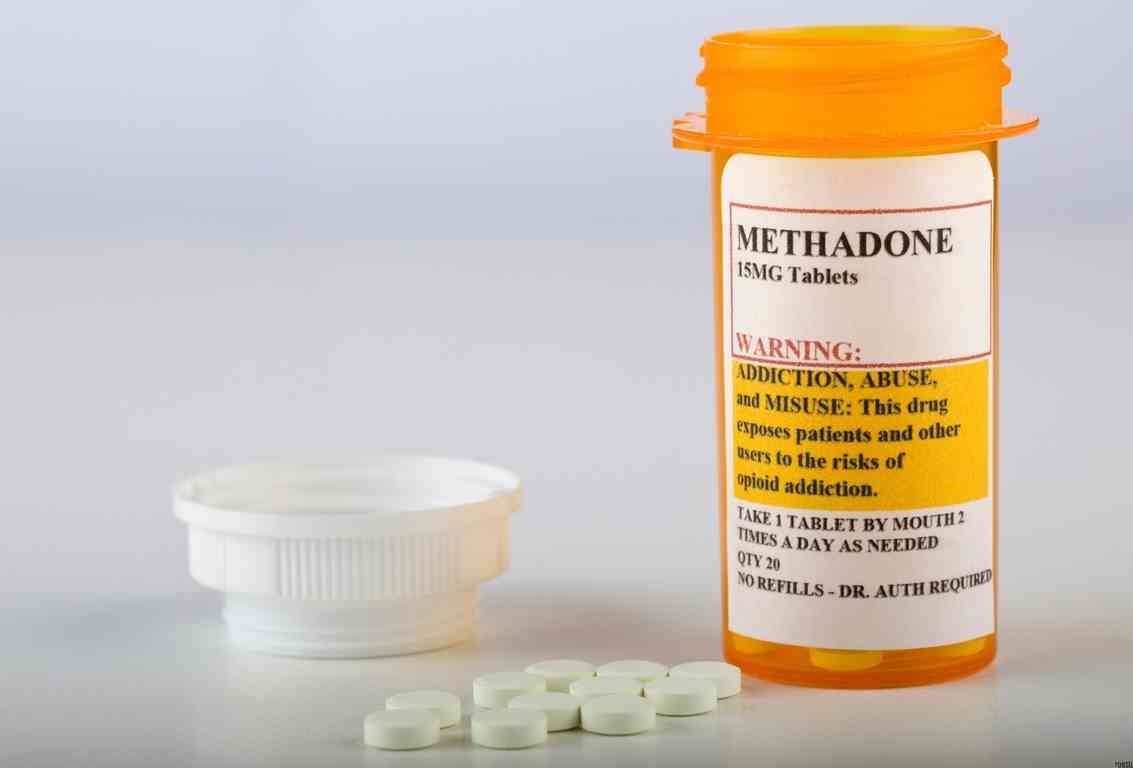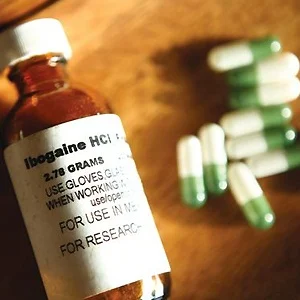Methadone Addiction Treatment is a significant public health issue affecting millions of individuals globally. Despite its widespread use in medication-assisted treatment (MAT) programs for opioid dependence and heroin addiction, methadone can lead to addiction, creating a new set of challenges for those seeking recovery.
Under Methadone Addiction Treatment, we will cover;

This comprehensive guide explores the potential of ibogaine treatment as a holistic and transformative approach to overcoming methadone addiction and opioid dependence.
Understanding Methadone Addiction and Withdrawal Symptoms
Methadone is often prescribed to manage opioid use disorder (OUD) due to its ability to reduce withdrawal symptoms and cravings.
Patients suffering from methadone dependence experience severe withdrawal symptoms when they attempt to reduce or stop methadone use abruptly. Similar to methadone, individuals undergoing heroin withdrawal also experience severe symptoms.

These symptoms include anxiety, muscle pain, insomnia, and nausea, making it challenging to discontinue use without medical intervention. This phenomenon has led to methadone being referred to as “liquid handcuffs,” as patients feel bound to their medication.
The Opioid Epidemic and the Need for Effective Treatment
The opioid epidemic has devastated communities worldwide, with opioid addiction and drug overdoses reaching unprecedented levels.
Traditional treatments, including methadone and buprenorphine, have been effective for some but fall short for others due to their potential for dependence and side effects. Effective opioid detoxification methods are crucial in addressing the opioid epidemic. The urgent need for innovative treatment options has led researchers to explore the possibility of psychedelics, such as ibogaine, in treating substance use disorders.
Ibogaine: A Natural Alternative for Opioid Addiction Treatment
Ibogaine, an alkaloid derived from the iboga plant native to Central Africa, offers a unique approach to addiction treatment. Unlike conventional medications, ibogaine works by interrupting the neural pathways associated with addiction, providing a “reset” for the brain.

This process can help alleviate withdrawal symptoms and reduce cravings, making it easier for patients to overcome opiate dependence. The iboga plant has been used for centuries in traditional African rituals, highlighting its potential therapeutic benefits.
Clinical Trials and Evidence Supporting Ibogaine Treatment
Over the past decade, numerous clinical trials and studies have demonstrated the efficacy of ibogaine in treating opioid addiction. Research conducted by the National Institute on Drug Abuse (NIDA) and other institutions has shown that ibogaine can significantly reduce opioid withdrawal symptoms and cravings in patients with opioid use disorder.
These studies also highlight the potential of ibogaine to promote long-term recovery by addressing the underlying neural mechanisms of addiction. Alan Davis, a leading researcher in psychedelic studies, has emphasized the transformative effects of ibogaine on patients struggling with substance use disorders.
Ibogaine Treatment Programs: A Holistic Approach to Recovery
Ibogaine treatment programs are designed to provide comprehensive care tailored to each patient’s needs. These programs are often conducted in specialized ibogaine clinics with trained medical professionals. They typically involve a thorough medical assessment, psychological support, and ongoing monitoring to ensure safety and efficacy.

Ibogaine is administered in a controlled environment, often in specialized clinics with trained medical professionals. This approach helps mitigate potential health risks and enhances the overall treatment experience for patients.
Safety and Risks of Ibogaine Treatment
While ibogaine shows promise as an addiction treatment, it is not without risks. Unlike FDA-approved drugs, ibogaine is not yet approved for medical use, highlighting the need for further research and regulatory approval. High doses of ibogaine can lead to serious side effects, including cardiac complications and liver toxicity. Therefore, conducting thorough medical screenings and providing close monitoring during treatment is crucial.
Researchers and clinicians continue to work towards developing safer protocols and addressing these risks to make ibogaine a viable treatment option for more individuals. The Drug Enforcement Administration (DEA) and other regulatory bodies closely monitor these developments to ensure patient safety.
Ibogaine vs. Traditional Medications: A Comparative Analysis
Traditional medications like methadone and buprenorphine are FDA-approved and widely used in MAT programs. However, they often require long-term use and can lead to dependence. In contrast, ibogaine offers a potential one-time treatment that addresses the root causes of addiction.
This distinction makes ibogaine an attractive alternative for those seeking a more holistic and less dependency-driven approach to recovery. Unlike buprenorphine, ibogaine does not necessitate daily administration, thus reducing the risk of developing another dependency.
The Role of Psychedelic Studies in Advancing Addiction Treatment
Psychedelic studies have gained momentum in recent years, with researchers exploring the therapeutic potential of substances like magic mushrooms (psilocybin), LSD, and ibogaine. These studies are contributing to a broader understanding of how psychedelics can be used to treat various mental health and substance use disorders.
Organizations like Atai Life Sciences are at the forefront of this research, advocating for the responsible integration of psychedelics into clinical practice. The chief scientific officer at Atai Life Sciences has emphasized the importance of rigorous research and clinical trials to validate the efficacy and safety of these treatments.
The Future of Ibogaine in Addiction Treatment
As the opioid epidemic continues to evolve, the need for innovative and effective treatment options becomes more pressing. Ibogaine represents a promising avenue for addressing this crisis, offering a new approach to addiction treatment that goes beyond symptom management.
Ongoing research and advocacy are essential to bring ibogaine into mainstream treatment programs and provide hope for those struggling with opioid addiction. The potential of ibogaine to transform addiction treatment lies in its ability to reset the brain’s neural pathways, offering a fresh start for patients.
Integrating Ibogaine into Treatment Programs
Integrating ibogaine into existing treatment programs requires collaboration between medical professionals, researchers, and regulatory bodies. Establishing standardized protocols and safety measures is crucial to ensure that ibogaine is administered responsibly.
Treatment programs should include comprehensive care that addresses not only the physical aspects of addiction but also the psychological and emotional factors contributing to substance use disorders.
The Importance of Continued Research and Advocacy
Continued research into ibogaine and other psychedelics is essential to understand their full potential and address any safety concerns. Advocacy efforts are needed to promote the acceptance of these treatments within the medical community and among regulatory bodies.
By supporting rigorous scientific studies and clinical trials, we can build a solid evidence base that supports the use of ibogaine in treating opioid addiction.
Addressing Health Risks and Ensuring Patient Safety
Ensuring patient safety is paramount in the administration of ibogaine. This involves conducting thorough medical assessments to identify any underlying health conditions that may increase the risk of adverse effects.
Close monitoring during treatment can help manage any complications that arise. Additionally, integrating psychological support into the treatment program can enhance the overall recovery process, providing patients with the tools they need to maintain long-term sobriety.
Conclusion
Ibogaine offers a revolutionary approach to treating methadone addiction and opioid dependence. By addressing the underlying neural mechanisms of addiction, ibogaine can alleviate withdrawal symptoms and reduce cravings, providing a path to recovery for those struggling with opioid use disorder.
While safety concerns and the need for further clinical validation remain, ibogaine holds the potential to transform addiction treatment and offer new hope for patients worldwide. As research and clinical trials continue to advance, ibogaine may emerge as a critical tool in combating the opioid epidemic and promoting long-term recovery and wellness for individuals affected by substance use disorders.


